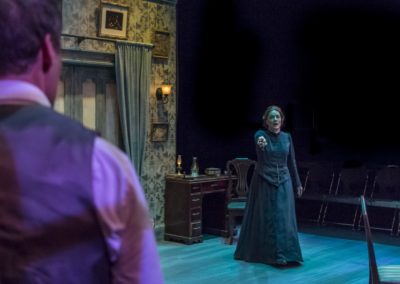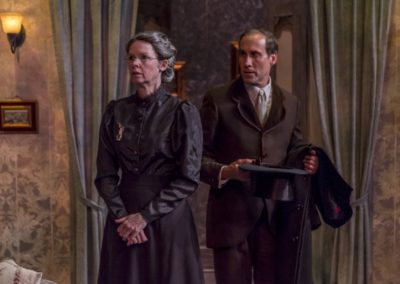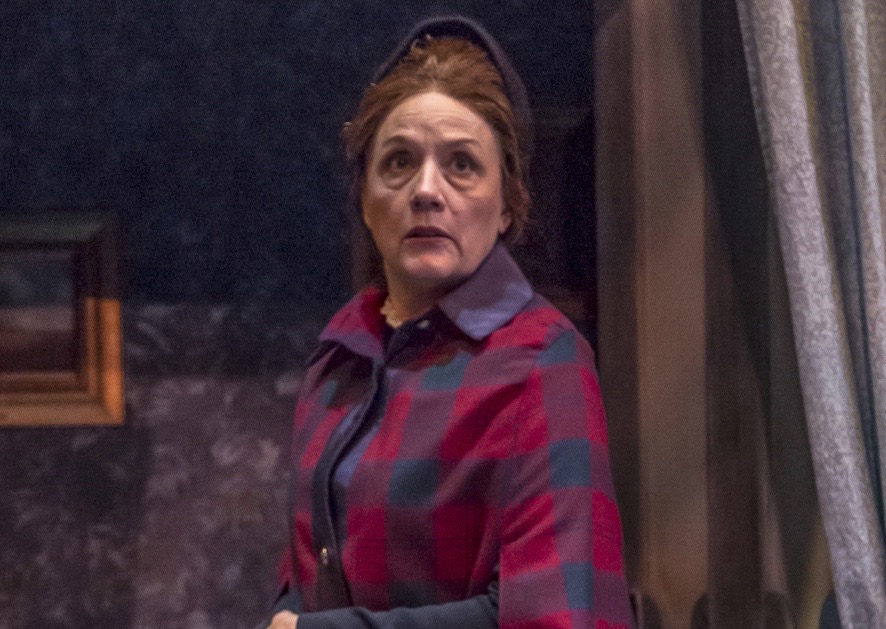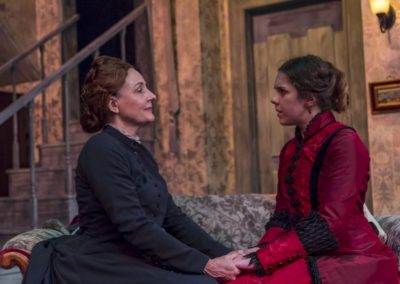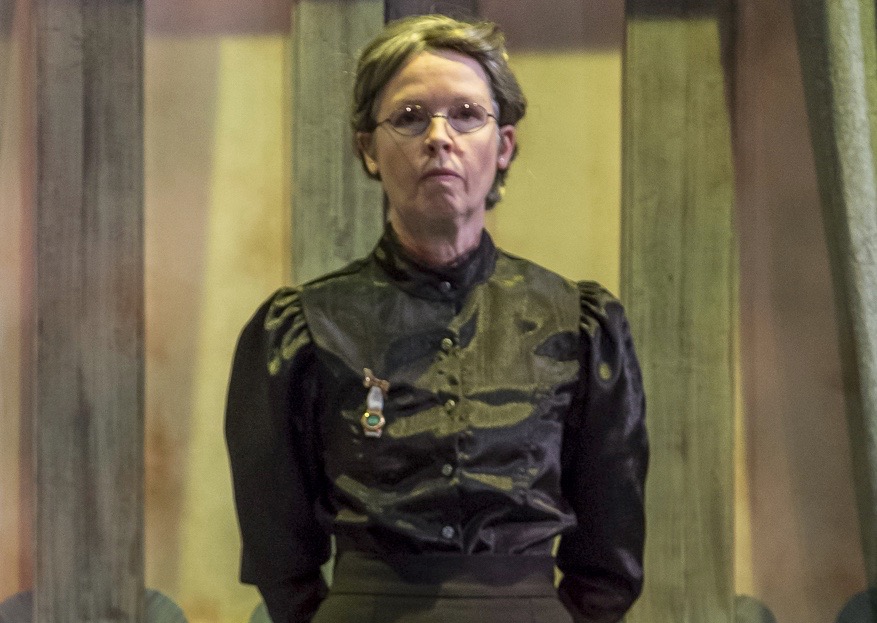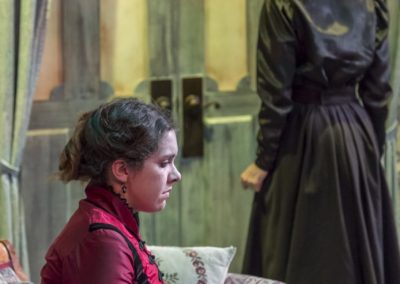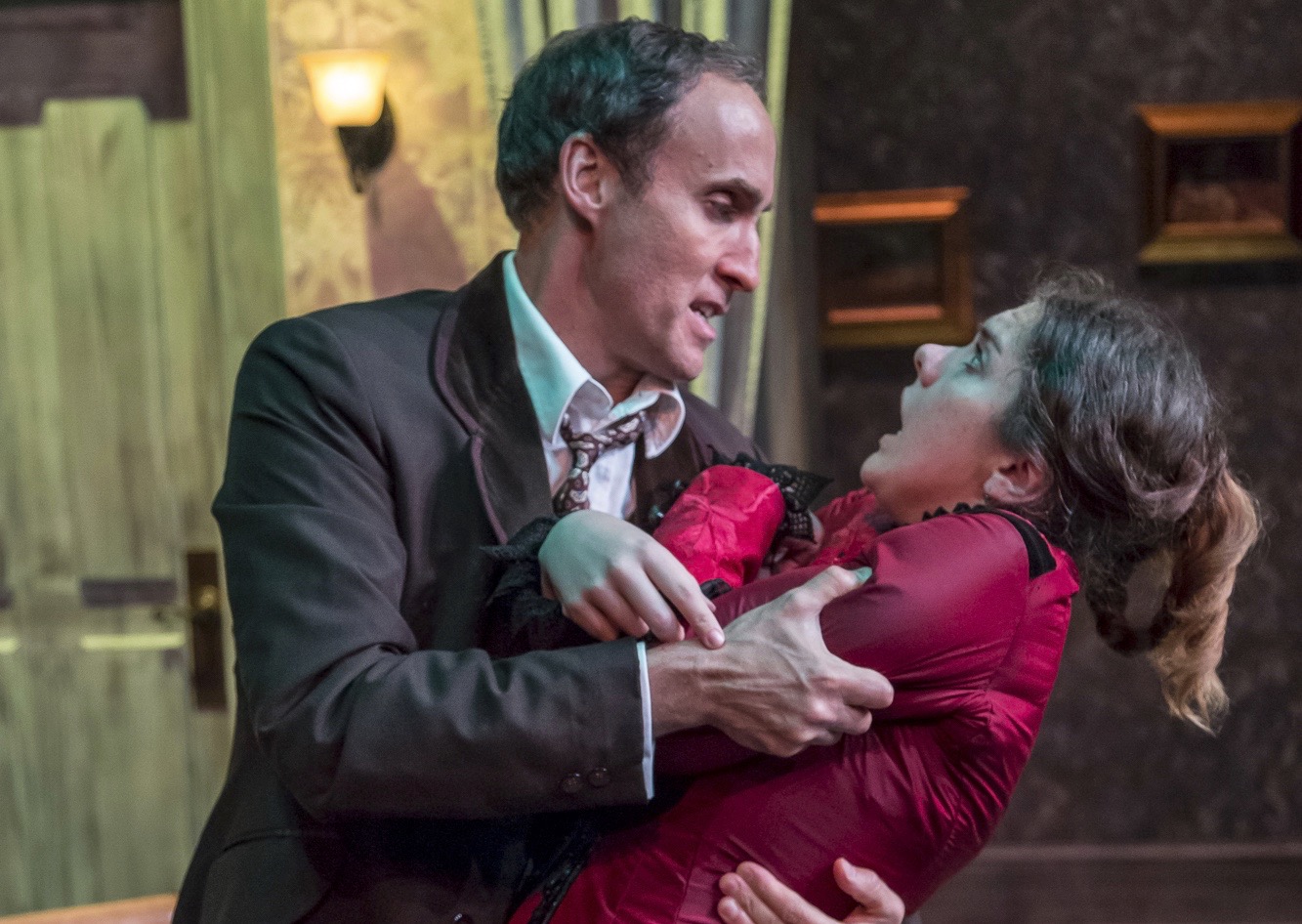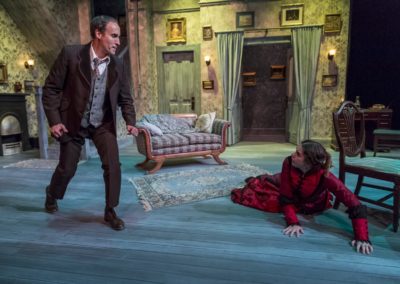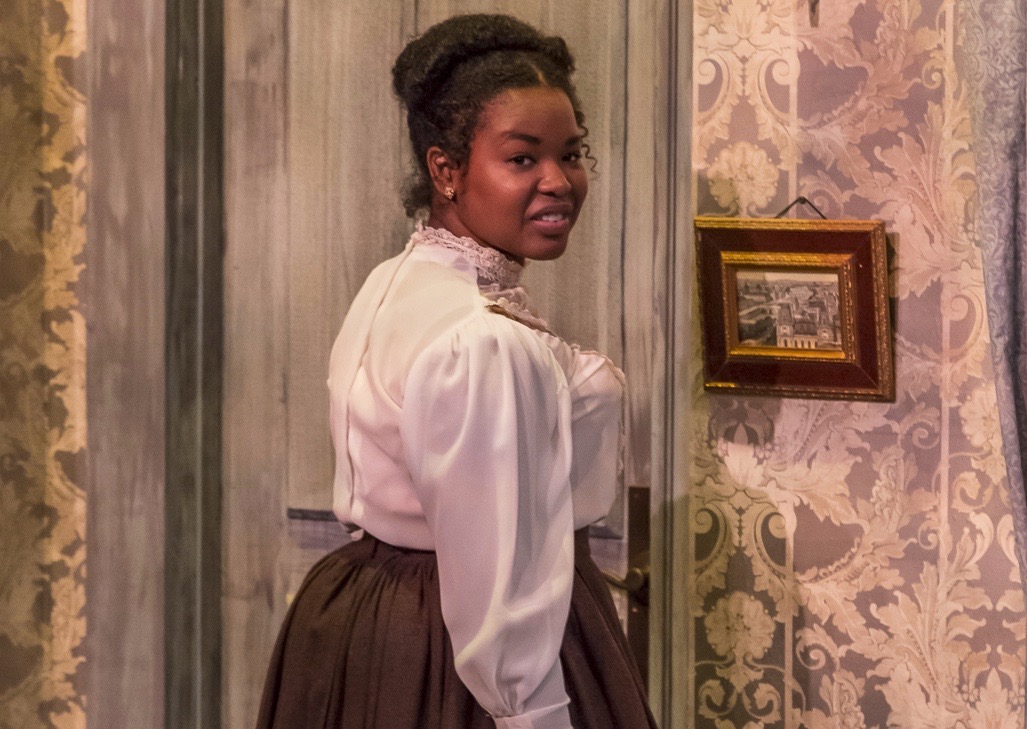Angel Street by Patrick Hamilton
Kansas Repertory TheatreDirector's Program Notes
After a successful stint on London’s West End during the 1930s, Patrick Hamilton’s Angel Street opened to unexpected raves at Broadway’s Golden Theatre in December of 1941. Hailed as “charming [yet] thrilling,” “a masterpiece of suspense,” and “enormously exciting,” NYC audiences were glued to their seats from start to finish enraptured by the play’s taut structure, comic relief, and sinister melodrama. The venerable Burns Mantle claimed to “have just seen the theatre really come alive for the first time this season,” thereby presaging its unlikely achievement as the longest running drama in Broadway history for its time (3 years, 1,295 performances). Indeed, it arrived on the Great White Way while productions by the celebrated likes of Clifford Odets, Kaufman and Ferber, and Maxwell Anderson all flopped. Angel Street was a remarkable sensation as noted by First Lady, Eleanor Roosevelt, who recommended it “to anyone who wants to be absorbed and taken out of his daily round of interests.”
Roosevelt’s telling comment still applies some seventy-five years later, as American audiences crave entertaining escapes from their daily lives. Angel Street is rife with thrills, suspense, and suitable doses of comic relief in the context of an enjoyable evening of theatre. It is a polite if not exacting nod to melodrama, a theatrical form dating back to eighteenth century France that reached its height in popularity in the US during the mid-1800s. Replete with two-dimensional characters clearly drawn along the lines of good vs. evil, oftentimes centered on a damsel in distress at the hands of a villainous male who will be outdueled by a heroic figure (also male), melodramas were written in the key of suspense and sensationalism and became one of the most popular forms of entertainment in both Europe and the US. Angel Street, however, is a much more nuanced work. While its trio of leading characters certainly fit the Villain—Victim—Hero formula, it does so as a psychological thriller rich with nuanced characterizations and a taut through-line of action. Unfolding in the short span of a single afternoon and ensuing evening, Hamilton has packed the torment, travails, and ultimately, the revenge of Mrs. Manningham relative to the machinations of her sinister husband into an emotional rollercoaster of thrills, chills, and excitement. It is, after all, a murder mystery without the murder, as the play’s primary source of conflict stems from Manningham’s tortuous manipulation of his victimized wife, a distinct departure from the conventional, plot-driven “whodunit” thrillers of the likes of Agatha Christie. Thus, Angel Street’s theatrical effectiveness rests with its merits as a psychological thriller: Manningham’s diabolical pathology shrouded by his charm and elegance; Bella’s desperately innocent need to make her marriage work despite being cruelly—and obviously¾“Gaslighted”; Rough’s uncanny mix of daffiness and pristine detective work.
One final note on casting: given the play’s misogynist bent, we have cast the role of Detective Rough as a woman. Admittedly an anachronistic choice, as female detectives don’t appear in London until World War One, we have made this decision to push against the male/female binary of melodramatic tradition in which the latter are rendered helpless in need of a man’s rescue. With the very capable Jeanne Averil rendering Rough, we have managed to problematize the play’s sexist tone in favor of a scenario more acceptable to a twenty-first century audience while maintaining the theatrical thrills that has been entertaining audiences since Angel Street’s inception.
Roosevelt’s telling comment still applies some seventy-five years later, as American audiences crave entertaining escapes from their daily lives. Angel Street is rife with thrills, suspense, and suitable doses of comic relief in the context of an enjoyable evening of theatre. It is a polite if not exacting nod to melodrama, a theatrical form dating back to eighteenth century France that reached its height in popularity in the US during the mid-1800s. Replete with two-dimensional characters clearly drawn along the lines of good vs. evil, oftentimes centered on a damsel in distress at the hands of a villainous male who will be outdueled by a heroic figure (also male), melodramas were written in the key of suspense and sensationalism and became one of the most popular forms of entertainment in both Europe and the US. Angel Street, however, is a much more nuanced work. While its trio of leading characters certainly fit the Villain—Victim—Hero formula, it does so as a psychological thriller rich with nuanced characterizations and a taut through-line of action. Unfolding in the short span of a single afternoon and ensuing evening, Hamilton has packed the torment, travails, and ultimately, the revenge of Mrs. Manningham relative to the machinations of her sinister husband into an emotional rollercoaster of thrills, chills, and excitement. It is, after all, a murder mystery without the murder, as the play’s primary source of conflict stems from Manningham’s tortuous manipulation of his victimized wife, a distinct departure from the conventional, plot-driven “whodunit” thrillers of the likes of Agatha Christie. Thus, Angel Street’s theatrical effectiveness rests with its merits as a psychological thriller: Manningham’s diabolical pathology shrouded by his charm and elegance; Bella’s desperately innocent need to make her marriage work despite being cruelly—and obviously¾“Gaslighted”; Rough’s uncanny mix of daffiness and pristine detective work.
One final note on casting: given the play’s misogynist bent, we have cast the role of Detective Rough as a woman. Admittedly an anachronistic choice, as female detectives don’t appear in London until World War One, we have made this decision to push against the male/female binary of melodramatic tradition in which the latter are rendered helpless in need of a man’s rescue. With the very capable Jeanne Averil rendering Rough, we have managed to problematize the play’s sexist tone in favor of a scenario more acceptable to a twenty-first century audience while maintaining the theatrical thrills that has been entertaining audiences since Angel Street’s inception.
Cast & Design Team
- Set Design:
- Mark Reaney
- Costume and Lighting Design:
- Leah Mazur
- Sound Design:
- Dennis Christilles
- Stage Manager:
- Jenifer Cooper*
- Cast:
- Mrs. Manningham: Abby Sharp
- Mr. Manningham: Michael Samuel Kaplan*
- Nancy: Bri Woods
- Elizabeth: Gail Trottier
- Detective Sergeant Rough: Jeanne Averil*
- Policeman: Daniel Sakamoto-Wengel
- Policeman: Kevin Siess
- Mr. Manningham (understudy): Daniel Sakamoto-Wengel




